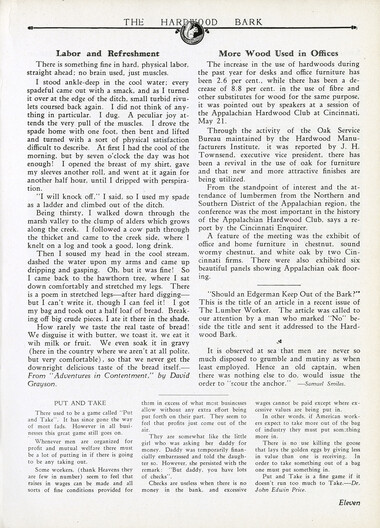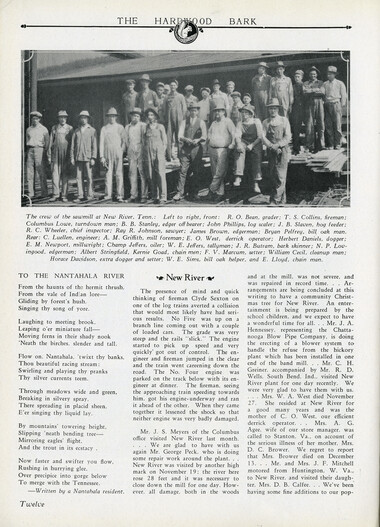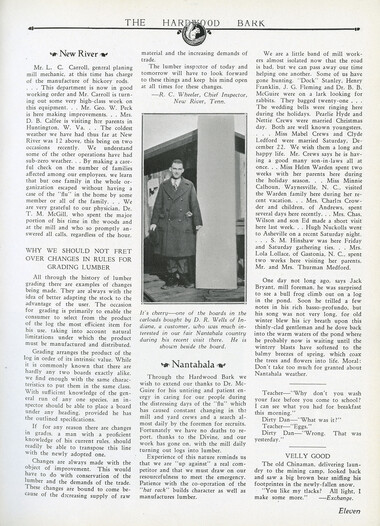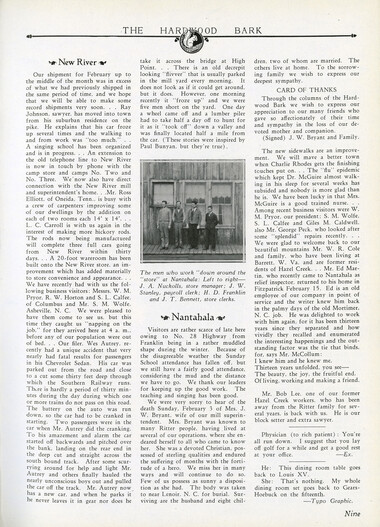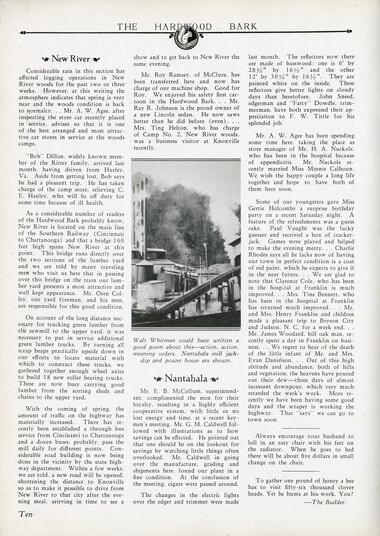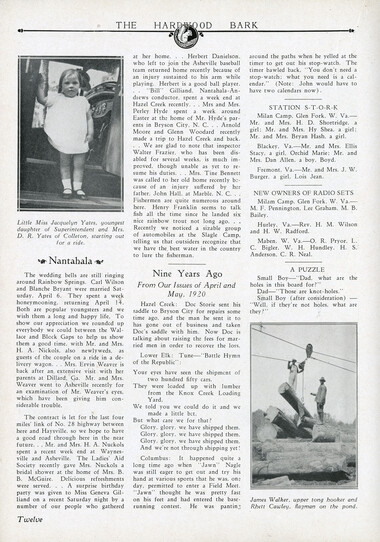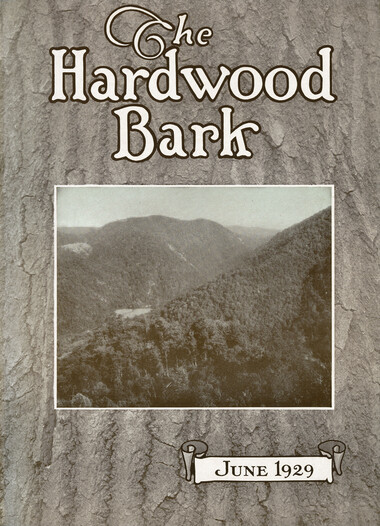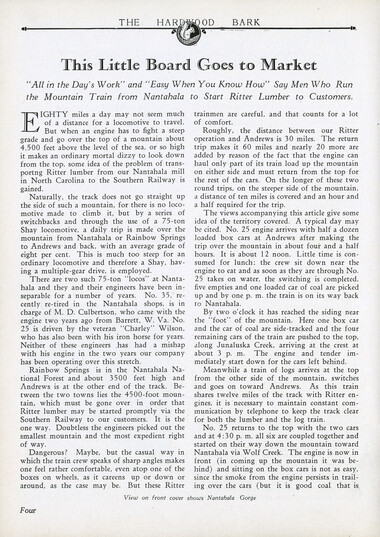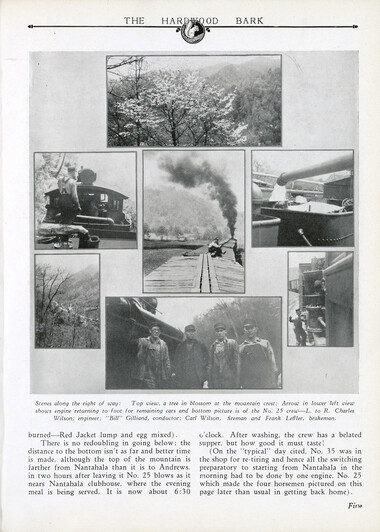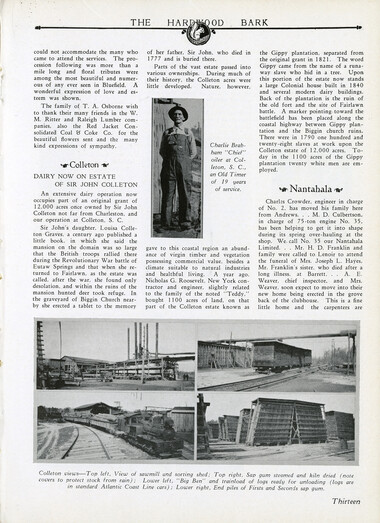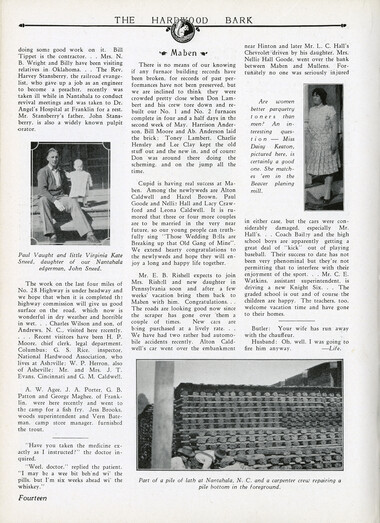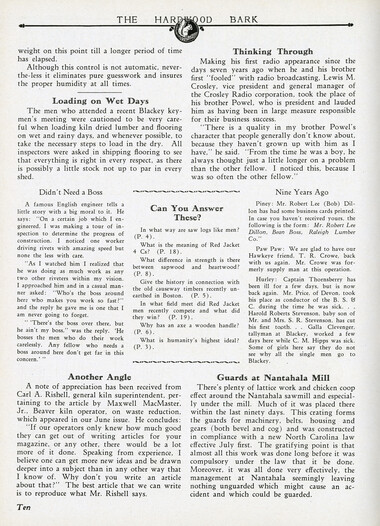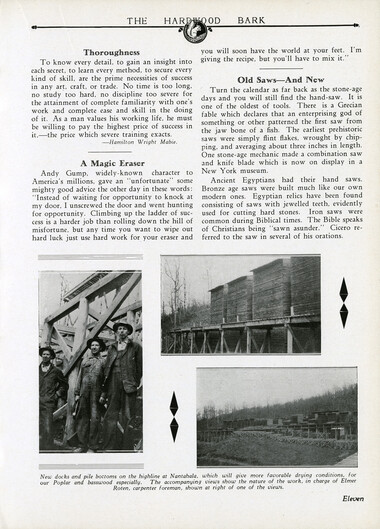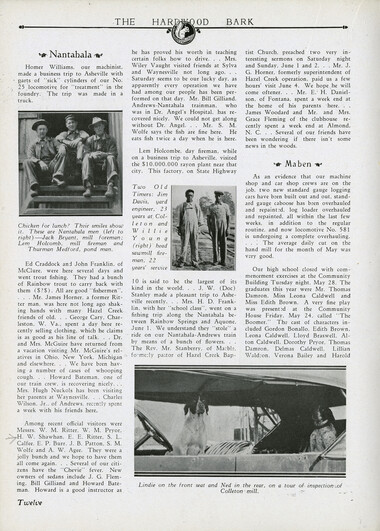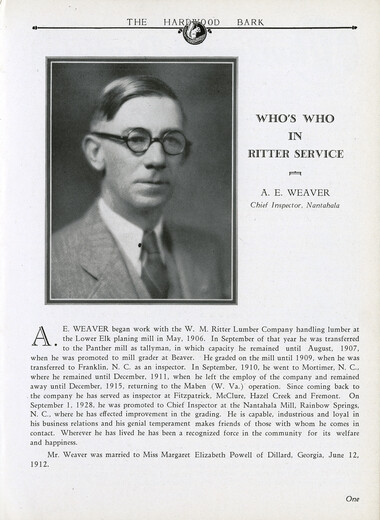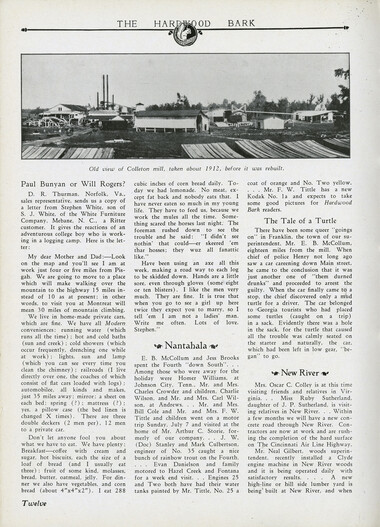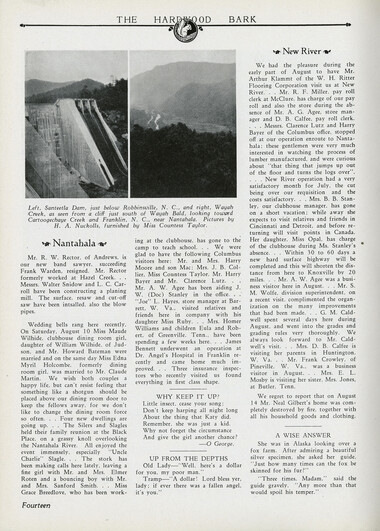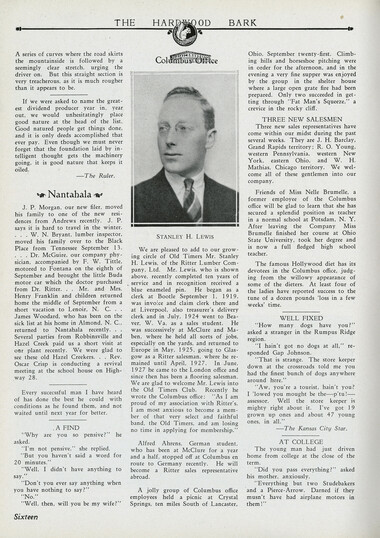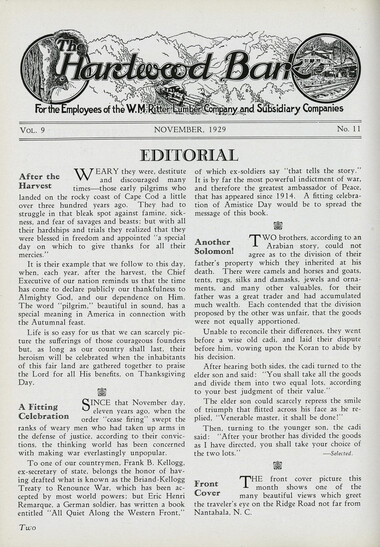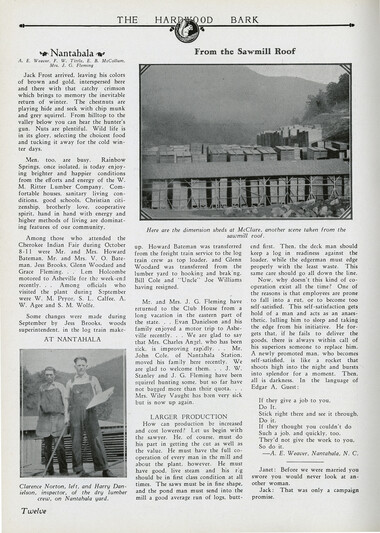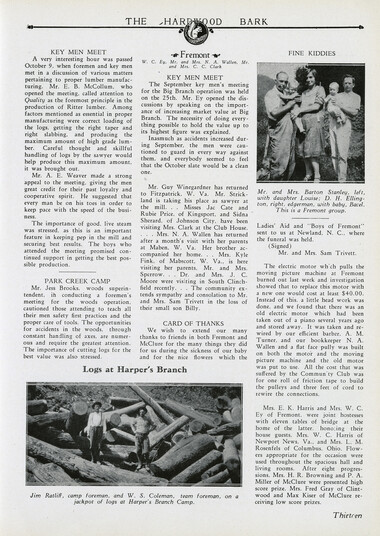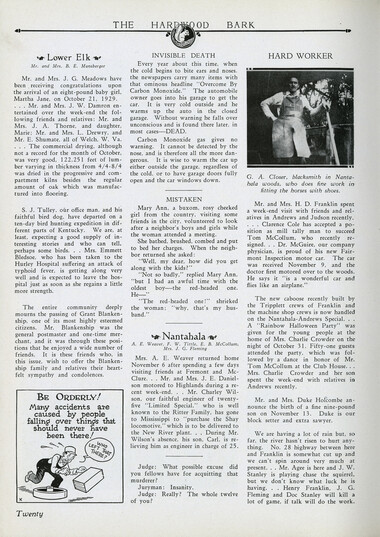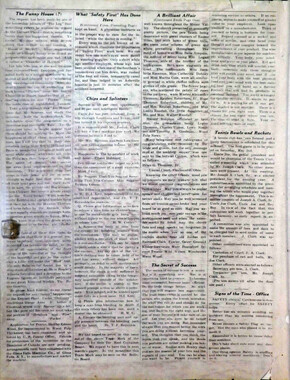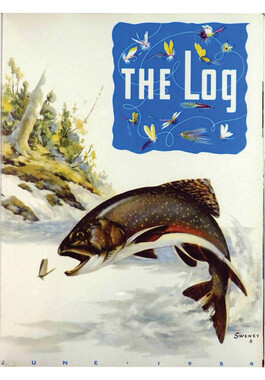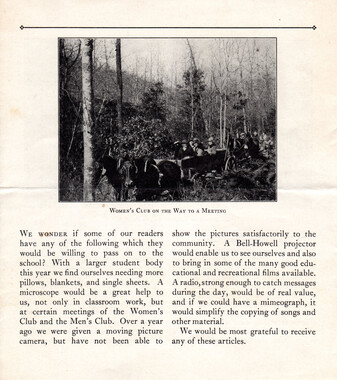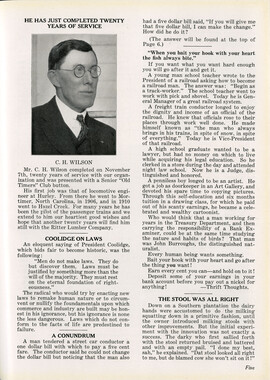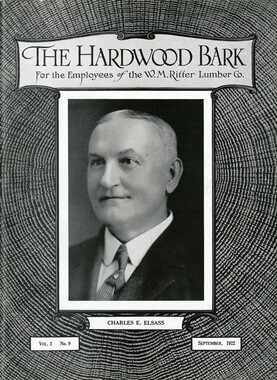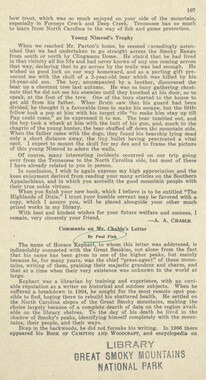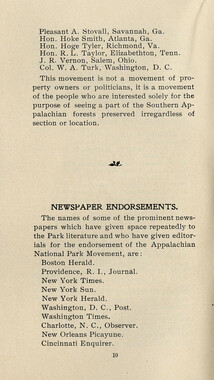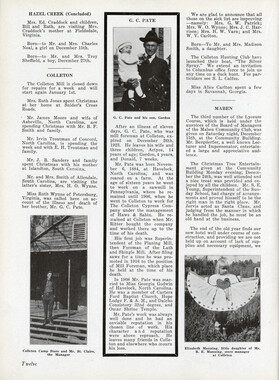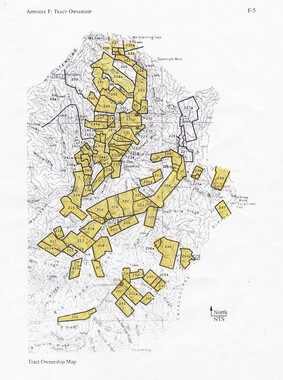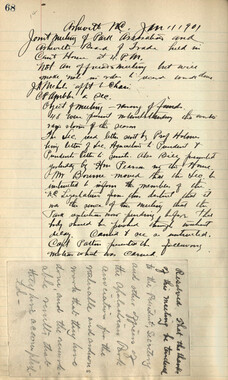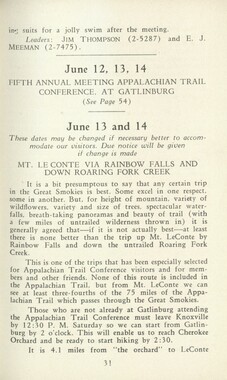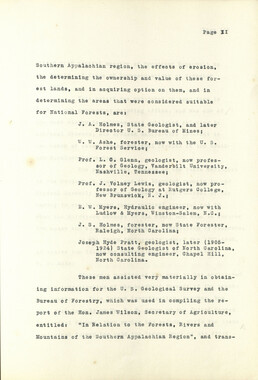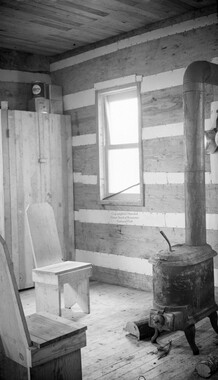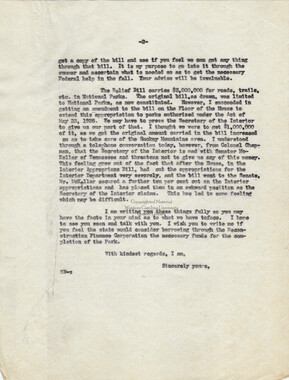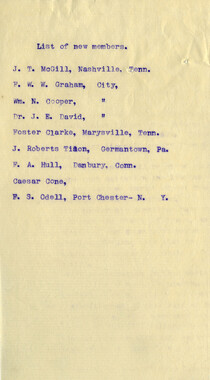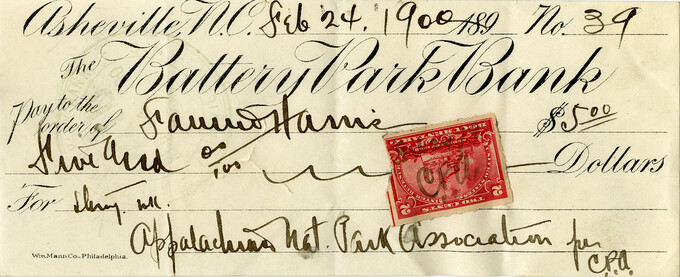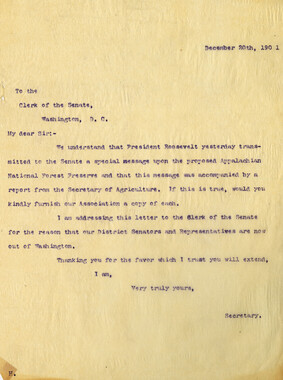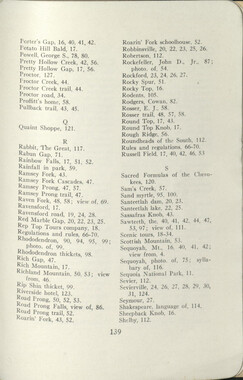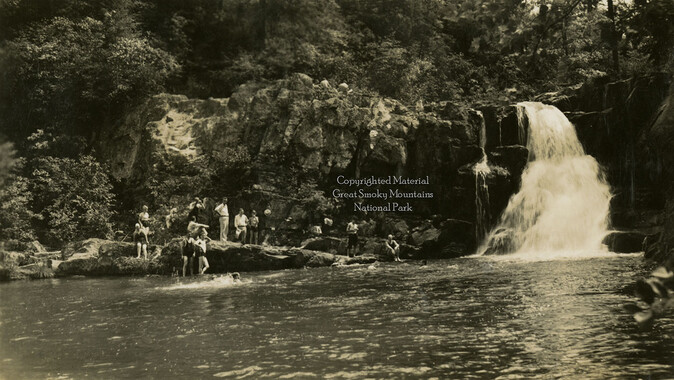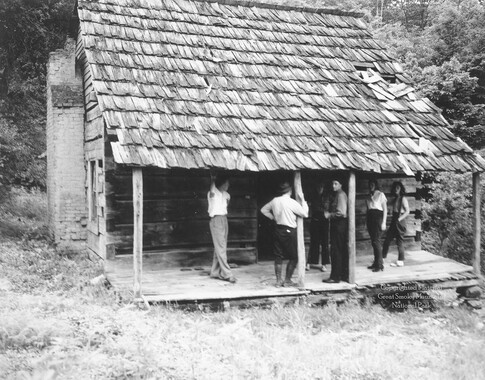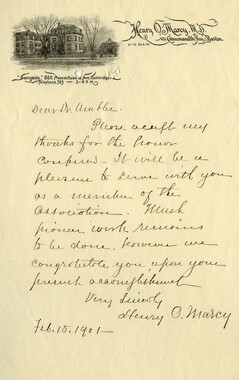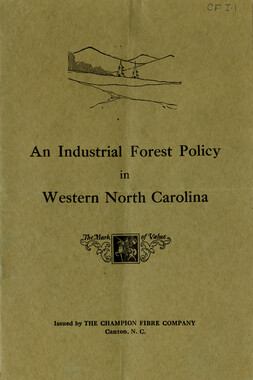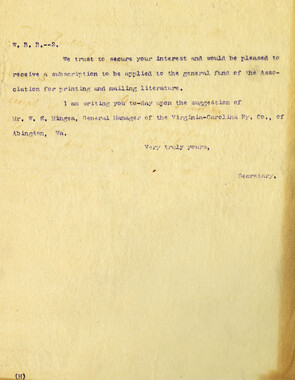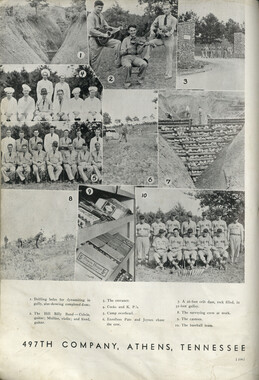Western Carolina University (21)
View all
- Canton Champion Fibre Company (2308)
- Cherokee Traditions (291)
- Civil War in Southern Appalachia (165)
- Craft Revival (1942)
- George Masa Collection (135)
- Great Smoky Mountains - A Park for America (2901)
- Highlights from Western Carolina University (422)
- Horace Kephart (941)
- Journeys Through Jackson (159)
- LGBTQIA+ Archive of Jackson County (85)
- Oral Histories of Western North Carolina (314)
- Picturing Appalachia (6798)
- Stories of Mountain Folk (413)
- Travel Western North Carolina (153)
- Western Carolina University Fine Art Museum Vitreograph Collection (129)
- Western Carolina University Herbarium (92)
- Western Carolina University: Making Memories (738)
- Western Carolina University Publications (2491)
- Western Carolina University Restricted Electronic Theses and Dissertations (146)
- Western North Carolina Regional Maps (71)
- World War II in Southern Appalachia (131)
University of North Carolina Asheville (6)
View all
- Allanstand Cottage Industries (62)
- Appalachian National Park Association (53)
- Bennett, Kelly, 1890-1974 (1463)
- Berry, Walter (76)
- Brasstown Carvers (40)
- Carver, George Washington, 1864?-1943 (26)
- Cathey, Joseph, 1803-1874 (1)
- Champion Fibre Company (233)
- Champion Paper and Fibre Company (297)
- Cherokee Indian Fair Association (16)
- Cherokee Language Program (22)
- Crowe, Amanda (40)
- Edmonston, Thomas Benton, 1842-1907 (7)
- Ensley, A. L. (Abraham Lincoln), 1865-1948 (275)
- Fromer, Irving Rhodes, 1913-1994 (70)
- George Butz (BFS 1907) (46)
- Goodrich, Frances Louisa (120)
- Grant, George Alexander, 1891-1964 (96)
- Heard, Marian Gladys (60)
- Kephart, Calvin, 1883-1969 (15)
- Kephart, Horace, 1862-1931 (313)
- Kephart, Laura, 1862-1954 (39)
- Laney, Gideon Thomas, 1889-1976 (439)
- Masa, George, 1881-1933 (61)
- McElhinney, William Julian, 1896-1953 (44)
- Niggli, Josephina, 1910-1983 (10)
- North Carolina Park Commission (105)
- Osborne, Kezia Stradley (9)
- Owens, Samuel Robert, 1918-1995 (11)
- Penland Weavers and Potters (36)
- Roberts, Vivienne (15)
- Roth, Albert, 1890-1974 (142)
- Schenck, Carl Alwin, 1868-1955 (1)
- Sherrill's Photography Studio (2565)
- Southern Highland Handicraft Guild (127)
- Southern Highlanders, Inc. (71)
- Stalcup, Jesse Bryson (46)
- Stearns, I. K. (213)
- Thompson, James Edward, 1880-1976 (226)
- United States. Indian Arts and Crafts Board (130)
- USFS (683)
- Vance, Zebulon Baird, 1830-1894 (1)
- Weaver, Zebulon, 1872-1948 (58)
- Western Carolina College (230)
- Western Carolina Teachers College (282)
- Western Carolina University (2008)
- Western Carolina University. Mountain Heritage Center (18)
- Whitman, Walt, 1819-1892 (10)
- Wilburn, Hiram Coleman, 1880-1967 (73)
- Williams, Isadora (3)
- Cain, Doreyl Ammons (0)
- Crittenden, Lorraine (0)
- Rhodes, Judy (0)
- Smith, Edward Clark (0)
- Appalachian Region, Southern (2924)
- Asheville (N.C.) (1941)
- Avery County (N.C.) (26)
- Blount County (Tenn.) (195)
- Buncombe County (N.C.) (1672)
- Cherokee County (N.C.) (283)
- Clay County (N.C.) (556)
- Graham County (N.C.) (236)
- Great Smoky Mountains National Park (N.C. and Tenn.) (525)
- Haywood County (N.C.) (3569)
- Henderson County (N.C.) (70)
- Jackson County (N.C.) (4913)
- Knox County (Tenn.) (35)
- Knoxville (Tenn.) (13)
- Lake Santeetlah (N.C.) (10)
- Macon County (N.C.) (420)
- Madison County (N.C.) (215)
- McDowell County (N.C.) (39)
- Mitchell County (N.C.) (135)
- Polk County (N.C.) (35)
- Qualla Boundary (982)
- Rutherford County (N.C.) (76)
- Swain County (N.C.) (2182)
- Transylvania County (N.C.) (270)
- Watauga County (N.C.) (12)
- Waynesville (N.C.) (86)
- Yancey County (N.C.) (72)
- Aerial Photographs (3)
- Aerial Views (60)
- Albums (books) (4)
- Articles (1)
- Artifacts (object Genre) (228)
- Bibliographies (1)
- Biography (general Genre) (2)
- Cards (information Artifacts) (38)
- Clippings (information Artifacts) (191)
- Copybooks (instructional Materials) (3)
- Crafts (art Genres) (622)
- Depictions (visual Works) (21)
- Design Drawings (1)
- Drawings (visual Works) (185)
- Envelopes (73)
- Exhibitions (events) (1)
- Facsimiles (reproductions) (1)
- Fiction (general Genre) (4)
- Financial Records (12)
- Fliers (printed Matter) (67)
- Glass Plate Negatives (381)
- Guidebooks (2)
- Internegatives (10)
- Interviews (815)
- Land Surveys (102)
- Letters (correspondence) (1013)
- Manuscripts (documents) (618)
- Maps (documents) (177)
- Memorandums (25)
- Minutes (administrative Records) (59)
- Negatives (photographs) (6090)
- Newsletters (1290)
- Newspapers (2)
- Notebooks (8)
- Occupation Currency (1)
- Paintings (visual Works) (1)
- Pen And Ink Drawings (1)
- Periodicals (193)
- Personal Narratives (10)
- Photographs (12976)
- Plans (maps) (1)
- Poetry (5)
- Portraits (4568)
- Postcards (329)
- Programs (documents) (181)
- Publications (documents) (2443)
- Questionnaires (65)
- Relief Prints (26)
- Sayings (literary Genre) (1)
- Scrapbooks (282)
- Sheet Music (2)
- Slides (photographs) (402)
- Songs (musical Compositions) (2)
- Sound Recordings (796)
- Specimens (92)
- Speeches (documents) (18)
- Tintypes (photographs) (8)
- Transcripts (322)
- Video Recordings (physical Artifacts) (23)
- Text Messages (0)
- A.L. Ensley Collection (275)
- Appalachian Industrial School Records (7)
- Appalachian National Park Association Records (336)
- Axley-Meroney Collection (2)
- Bayard Wootten Photograph Collection (20)
- Bethel Rural Community Organization Collection (7)
- Blumer Collection (5)
- C.W. Slagle Collection (20)
- Canton Area Historical Museum (2110)
- Carlos C. Campbell Collection (462)
- Cataloochee History Project (64)
- Cherokee Studies Collection (4)
- Daisy Dame Photograph Album (5)
- Daniel Boone VI Collection (1)
- Doris Ulmann Photograph Collection (112)
- Elizabeth H. Lasley Collection (1)
- Elizabeth Woolworth Szold Fleharty Collection (4)
- Frank Fry Collection (95)
- George Masa Collection (173)
- Gideon Laney Collection (452)
- Hazel Scarborough Collection (2)
- Hiram C. Wilburn Papers (28)
- Historic Photographs Collection (236)
- Horace Kephart Collection (861)
- Humbard Collection (33)
- Hunter and Weaver Families Collection (1)
- I. D. Blumenthal Collection (4)
- Isadora Williams Collection (4)
- Jesse Bryson Stalcup Collection (47)
- Jim Thompson Collection (224)
- John B. Battle Collection (7)
- John C. Campbell Folk School Records (80)
- John Parris Collection (6)
- Judaculla Rock project (2)
- Kelly Bennett Collection (1482)
- Love Family Papers (11)
- Major Wiley Parris Civil War Letters (3)
- Map Collection (12)
- McFee-Misemer Civil War Letters (34)
- Mountain Heritage Center Collection (4)
- Norburn - Robertson - Thomson Families Collection (44)
- Pauline Hood Collection (7)
- Pre-Guild Collection (2)
- Qualla Arts and Crafts Mutual Collection (12)
- R.A. Romanes Collection (681)
- Rosser H. Taylor Collection (1)
- Samuel Robert Owens Collection (94)
- Sara Madison Collection (144)
- Sherrill Studio Photo Collection (2558)
- Smoky Mountains Hiking Club Collection (616)
- Stories of Mountain Folk - Radio Programs (374)
- The Reporter, Western Carolina University (510)
- Venoy and Elizabeth Reed Collection (16)
- WCU Gender and Sexuality Oral History Project (32)
- WCU Mountain Heritage Center Oral Histories (25)
- WCU Oral History Collection - Mountain People, Mountain Lives (71)
- WCU Students Newspapers Collection (1923)
- Western North Carolina Tomorrow Black Oral History Project (69)
- William Williams Stringfield Collection (2)
- Zebulon Weaver Collection (109)
- African Americans (390)
- Appalachian Trail (35)
- Artisans (521)
- Cherokee art (84)
- Cherokee artists -- North Carolina (10)
- Cherokee language (21)
- Cherokee pottery (101)
- Cherokee women (208)
- Church buildings (190)
- Civilian Conservation Corps (U.S.) (111)
- College student newspapers and periodicals (2012)
- Dams (107)
- Dance (1023)
- Education (222)
- Floods (61)
- Folk music (1015)
- Forced removal, 1813-1903 (2)
- Forest conservation (220)
- Forests and forestry (1196)
- Gender nonconformity (4)
- Great Smoky Mountains National Park (N.C. and Tenn.) (181)
- Hunting (45)
- Landscape photography (25)
- Logging (119)
- Maps (83)
- Mines and mineral resources (8)
- North Carolina -- Maps (18)
- Paper industry (38)
- Postcards (255)
- Pottery (135)
- Railroad trains (72)
- Rural electrification -- North Carolina, Western (3)
- School integration -- Southern States (2)
- Segregation -- North Carolina, Western (5)
- Slavery (5)
- Sports (452)
- Storytelling (243)
- Waterfalls -- Great Smoky Mountains (N.C. and Tenn.) (66)
- Weaving -- Appalachian Region, Southern (280)
- Wood-carving -- Appalachian Region, Southern (328)
- World War, 1939-1945 (173)
Hardwood Bark, 1929
Item
Item’s are ‘child’ level descriptions to ‘parent’ objects, (e.g. one page of a whole book).
-
-
THE Labor and Refreshment There is something fine in hard, physical labor, straight ahead; no brain used, just muscles. I stood ankle-deep in the cool water; every spadeful came out with a smack, and as I turned it over at the edge of the ditch, small turbid rivulets coursed back again. I did not think of anything in particular. I dug. A peculiar joy attends the very pull of the muscles. I drove the spade home with one foot, then bent and lifted and turned with a sort of physical satisfaction difficult to describe. At first I had the cool of the morning, but by seven o'clock the day was hot enough! I opened the breast of my shirt, gave my sleeves another roll, and went at it again for another half hour, until I dripped with perspiration. "I will knock off," I said, so I used my spade as a ladder and climbed out of the ditch. Being thirsty, I walked down through the marsh valley to the clump of alders which grows along the creek. I followed a cow path through the thicket and came to the creek side, where I knelt on a log and took a good, long drink. Then I soused my head in the cool stream, dashed the water upon my arms and came up dripping and gasping. Oh, but it was fine! So I came back to the hawthorn tree, where I sat down comfortably and stretched my legs. There is a poem in stretched legs—after hard digging— but I can't write it, though I can feel it! I got my bag and took out a half loaf of bread. Breaking off big crude pieces, I ate it there in the shade. How rarely we taste the real taste of bread! We disguise it with butter, we toast it, we eat it wih milk or fruit. We even soak it in gravy (here in the country where we aren't at all polite, but very comfortable), so that we never get the downright delicious taste of the bread itself.— From "Adventures in Contentment," by David Grayson. BARK More Wood Used in Offices The increase in the use of hardwoods during the past year for desks and office furniture has been 2.6 per cent., while there has been a decrease of 8.8 per cent, in the use of fibre and other substitutes for wood for the same purpose, it was pointed out by speakers at a session of the Appalachian Hardwood Club at Cincinnati, May 21. Through the activity of the Oak Service Bureau maintained by the Hardwood Manufacturers Institute, it was reported by J. H. Townsend, executive vice president, there has been a revival in the use of oak for furniture and that new and more attractive finishes are being utilized. From the standpoint of interest and the attendance of lumbermen from the Northern and Southern District of the Appalachian region, the conference was the most important in the history of the Appalachian Hardwood Club, says a report by the Cincinnati Enquirer. A feature of the meeting was the exhibit of office and home furniture in chestnut, sound wormy chestnut, and white oak by two Cincinnati firms. There were also exhibited six beautiful panels showing Appalachian oak flooring. "Should an Edgerman Keep Out of the Bark?" This is the title of an article in a recent issue of The Lumber Worker. The article was called to our attention by a man who marked "No" beside the title and sent it addressed to the Hardwood Bark. It is observed at sea that men are never so much disposed to grumble and mutiny as when least employed. Hence an old captain, when there was nothing else to do, would issue the order to "scour the anchor." —Samuel Smiles. PUT AND TAKE There used to be a game called "Put and Take". It has since gone the way of most fads. However in all businesses this great game still goes on. Whenever men are organized for profit and mutual welfare there must be a lot of putting in if there is going to be any taking out. Some workers, (thank Heavens they are few in number) seem to feel that raises in wages can be made and all sorts of fine conditions provided for them in excess of what most businesses allow without any extra effort being put forth on their part. They seem to feel that profits just come out of the air. They are somewhat like the little girl who was asking her daddy for money. Daddy was temporarily financially embarrassed and told the daughter so. However, she persisted with the remark: "But daddy, you have lots of checks". Checks are useless when there is no money in the bank, and excessive wages cannot be paid except where excessive values are being put in. In other words, if American workers expect to take more out of the bag of industry they must put something more in. There is no use killing the goose that lays the golden eggs by giving less in value than one is receiving. In order to take something out of a bag one must put something in. Put and Take is a fine game if it doesn't run too much to Take.—Dr. John Edwin Price. Eleven
Object
Object’s are ‘parent’ level descriptions to ‘children’ items, (e.g. a book with pages).
-
“The Hardwood Bark” was a publication produced “for the employees of the W.M Ritter Lumber Co.” William McClellan Ritter (1864-1952) organized the company in 1901 and, from 1903 until 1926, the company operated on Hazel Creek in Swain County, North Carolina, before moving its operations to Nantahala. Published during the 1920s, the monthly newsletter typically ran to about 25 pages. “The Hardwood Bark” was filled with articles on the Ritter company and the timber industry, but also included local stories. The pages included in this collection were selected because they relate to communities within the Great Smoky Mountains National Park. The town of Ritter was near the junction of Hazel Creek and the Little Tennessee River; a sawmill was built at Proctor, about four miles north of Ritter. The town of Ritter has long since been abandoned and Proctor is beneath the waters of Fontana Lake.
-
